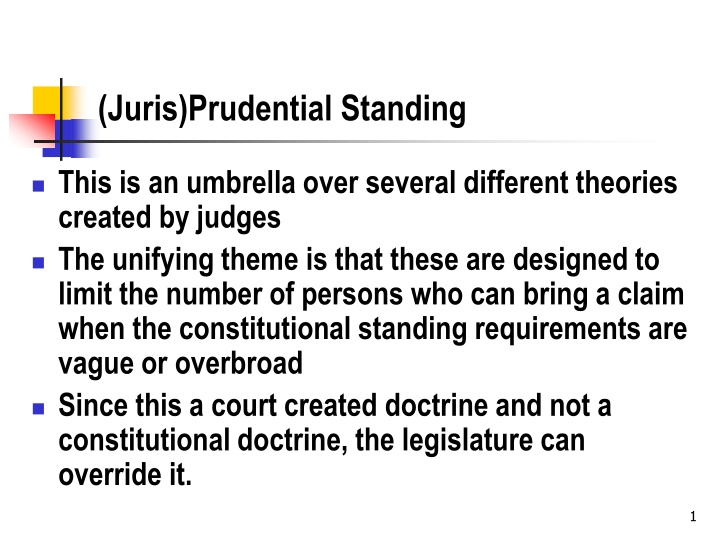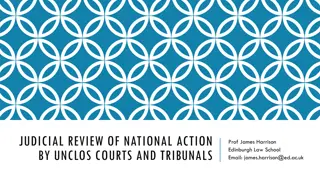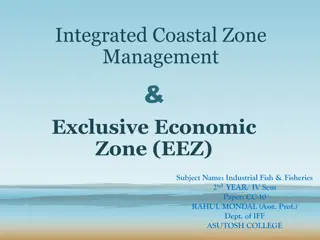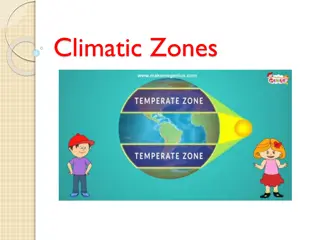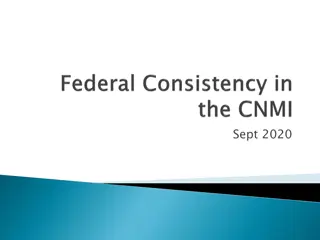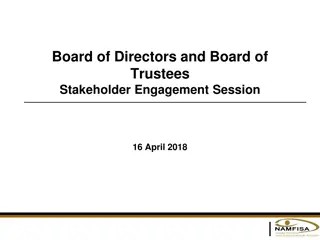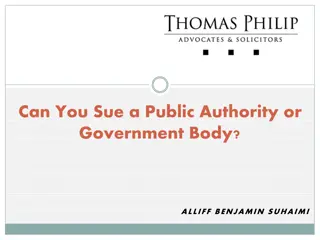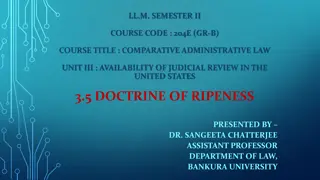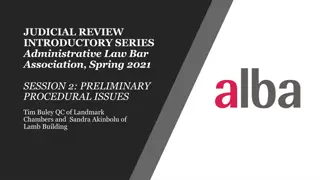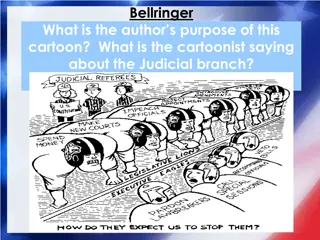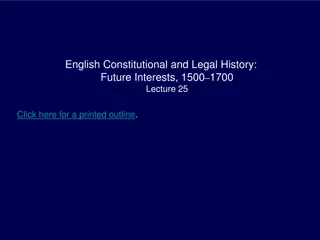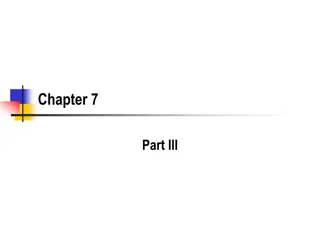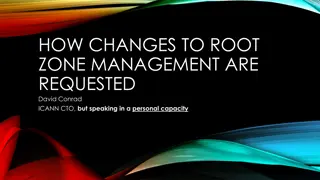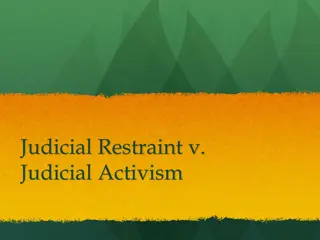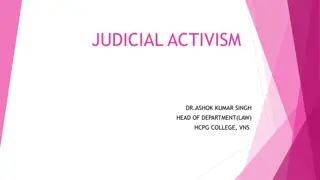Prudential Standing and Zone of Interests in Judicial Review
Umbrella theories like prudential standing and zone of interests are crafted by judges to limit claimants, with the legislature having the power to override them. Judicial review principles determine who can sue under statutes, examining statutory interpretation tools like the "zone of interests" analysis. This analysis questions if a legislative cause of action covers the plaintiff's claim. Legal cases like Lexmark, Inc. v. Static Control Components, Inc., Air Courier Conference of America v. American Postal Workers Union, and Bennett v. Spear shed light on constitutional standing, agency actions, and statutory interpretation in cases challenging laws.
Uploaded on Feb 27, 2025 | 1 Views
Download Presentation

Please find below an Image/Link to download the presentation.
The content on the website is provided AS IS for your information and personal use only. It may not be sold, licensed, or shared on other websites without obtaining consent from the author.If you encounter any issues during the download, it is possible that the publisher has removed the file from their server.
You are allowed to download the files provided on this website for personal or commercial use, subject to the condition that they are used lawfully. All files are the property of their respective owners.
The content on the website is provided AS IS for your information and personal use only. It may not be sold, licensed, or shared on other websites without obtaining consent from the author.
E N D
Presentation Transcript
(Juris)Prudential Standing This is an umbrella over several different theories created by judges The unifying theme is that these are designed to limit the number of persons who can bring a claim when the constitutional standing requirements are vague or overbroad Since this a court created doctrine and not a constitutional doctrine, the legislature can override it. 1
Zone of Interests 5 USC 702 A person suffering legal wrong because of agency action, or adversely affected or aggrieved by agency action within the meaning of a relevant statute, is entitled to judicial review thereof. Courts have read this to narrow claims to what the court determines is the purpose of the statute. Similar to the test in torts for negligence per se 2
Lexmark, Inc. v. Static Control Components, Inc. , 134 S.Ct. 1377 (2014) "'prudential standing' is a misnomer" as applied to the zone-of-interests analysis, which asks whether "this particular class of persons ha[s] a right to sue under this substantive statute. Whether a plaintiff comes within "the 'zone of interests'" is an issue that requires us to determine, using traditional tools of statutory interpretation, whether a legislatively conferred cause of action encompasses a particular plaintiff's claim. 3
Zone of Interest Analysis Through the Lens of Lexmark 4
Air Courier Conference of America v. American Postal Workers Union, 498 U.S. 517 (1991) Do postal workers have a right to challenge changes in the rules giving a monopoly on 1st class mail? What was the purpose of the law? Why did this break down? There were no postal worker unions when the law was passed. Why does this matter? 5
Bennett v. Spear, 520 U.S. 154 (1997) Ranchers want to contest rules under the Endangered Species Act limiting the release of water from dams. Why do they want the water released? What is the Endangered Species Act (ESA) problem? What is their constitutional standing injury? Why were they able to use the provision that the agency rely on the best data? Does their case improve the welfare of the suckers? How does their claim improve the application of the ESA? 6
Association of Data Processing Service Organizations, Inc. v. Camp, 397 U.S. 150 (1970) The court allowed competitors of banks to contest rule changes that would have let banks do data processing The intent of the law was to protect banks from bad business decisions, not to protect competitors The court found that the plaintiffs challenge to the law would further its purpose - limit the conflicts for banks - even if they were not the intended beneficiaries. Not specifically overruled, but maybe out of date. 7
Hazardous Waste Treatment Council v. Thomas, 885 F.2d 918 (D.C. Cir. 1989) Trade group represents providers of advanced waste treatment services EPA adopts a rule under RCRA requiring less complete treatment of waste Why might EPA do this? (remember CBA)? Why does plaintiff want to contest the rule? Is RCRA intended to protect waste treatment services? 8
Honeywell International, Inc. v. EPA, 374 F.3d 1363 (D.C. Cir. 2004) Plaintiff is challenging a rule promulgated by EPA that would allow a product made by a competitor to be substituted for a CFC. What sort of injury is this? Does this look like Hazardous Waste or Bennett (ESA case)? You challenge a rule by questioning whether it fits under the statute or whether it is properly supported by the record. 9
Zone of Interests Review Zone of Interest is now just ordinary statutory construction It is wrapped up in the Lujan test because if you are not covered by the statute, then you cannot be injured by the agency action. Is the plaintiff's interest directly addressed by the statute or reg? This can be an information injury, as in the ESA case. 10
